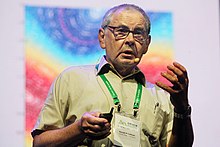The IMU Abacus Medal, known before 2022 as the Rolf Nevanlinna Prize, is awarded once every four years at the International Congress of Mathematicians, hosted by the International Mathematical Union (IMU), for outstanding contributions in Mathematical Aspects of Information Sciences including:
- All mathematical aspects of computer science, including computational complexity theory, logic of programming languages, analysis of algorithms, cryptography, computer vision, pattern recognition, information processing and modelling of intelligence.
- Scientific computing and numerical analysis. Computational aspects of optimization and control theory. Computer algebra.
The Rolf Schock Prizes were established and endowed by bequest of philosopher and artist Rolf Schock (1933–1986). The prizes were first awarded in Stockholm, Sweden, in 1993 and, since 2005, are awarded every three years. It is sometimes considered the equivalent of the Nobel Prize in Philosophy. Each recipient receives SEK 600,000.
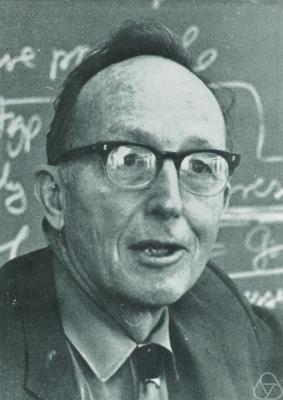
Saunders Mac Lane, born Leslie Saunders MacLane, was an American mathematician who co-founded category theory with Samuel Eilenberg.

Charles Louis Fefferman is an American mathematician at Princeton University, where he is currently the Herbert E. Jones, Jr. '43 University Professor of Mathematics. He was awarded the Fields Medal in 1978 for his contributions to mathematical analysis.
Sergei Petrovich Novikov was a Soviet and Russian mathematician, noted for work in both algebraic topology and soliton theory. He became the first Soviet mathematician to receive the Fields Medal in 1970.

Marshall Harvey Stone was an American mathematician who contributed to real analysis, functional analysis, topology and the study of Boolean algebras.

Terence Chi-Shen Tao is an Australian-American mathematician, Fields medalist, and professor of mathematics at the University of California, Los Angeles (UCLA), where he holds the James and Carol Collins Chair in the College of Letters and Sciences. His research includes topics in harmonic analysis, partial differential equations, algebraic combinatorics, arithmetic combinatorics, geometric combinatorics, probability theory, compressed sensing and analytic number theory.
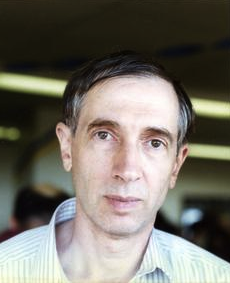
Richard Peter Stanley is an Emeritus Professor of Mathematics at the Massachusetts Institute of Technology, and an Arts and Sciences Distinguished Scholar at the University of Miami. From 2000 to 2010, he was the Norman Levinson Professor of Applied Mathematics. He received his Ph.D. at Harvard University in 1971 under the supervision of Gian-Carlo Rota. He is an expert in the field of combinatorics and its applications to other mathematical disciplines.
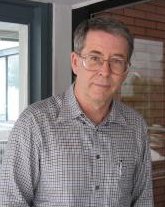
Michael George Aschbacher is an American mathematician best known for his work on finite groups. He was a leading figure in the completion of the classification of finite simple groups in the 1970s and 1980s. It later turned out that the classification was incomplete, because the case of quasithin groups had not been finished. This gap was fixed by Aschbacher and Stephen D. Smith in 2004, in a pair of books comprising about 1300 pages. Aschbacher is currently the Shaler Arthur Hanisch Professor of Mathematics at the California Institute of Technology.

Luis Ángel Caffarelli is an Argentine-American mathematician. He studies partial differential equations and their applications. Caffarelli is a professor of mathematics at the University of Texas at Austin, and the winner of the 2023 Abel Prize.
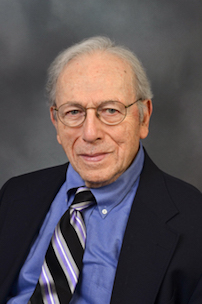
George Daniel Mostow was an American mathematician, renowned for his contributions to Lie theory. He was the Henry Ford II (emeritus) Professor of Mathematics at Yale University, a member of the National Academy of Sciences, the 49th president of the American Mathematical Society (1987–1988), and a trustee of the Institute for Advanced Study from 1982 to 1992.
Daniel Alan Spielman has been a professor of applied mathematics and computer science at Yale University since 2006. As of 2018, he is the Sterling Professor of Computer Science at Yale. He is also the Co-Director of the Yale Institute for Network Science, since its founding, and chair of the newly established Department of Statistics and Data Science.

Emmanuel Jean Candès is a French statistician most well known for his contributions to the field of compressed sensing and statistical hypothesis testing. He is a professor of statistics and electrical engineering at Stanford University, where he is also the Barnum-Simons Chair in Mathematics and Statistics. Candès is a 2017 MacArthur Fellow.
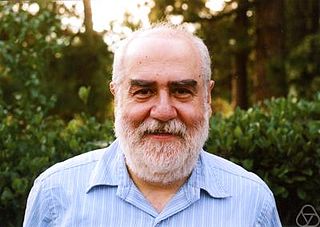
Gunther Alberto Uhlmann Arancibia is a mathematician whose research focuses on inverse problems and imaging, microlocal analysis, partial differential equations and invisibility.

George David Birkhoff was one of the top American mathematicians of his generation. He made valuable contributions to the theory of differential equations, dynamical systems, the four-color problem, the three-body problem, and general relativity. Today, Birkhoff is best remembered for the ergodic theorem. The George D. Birkhoff House, his residence in Cambridge, Massachusetts, has been designated a National Historic Landmark.
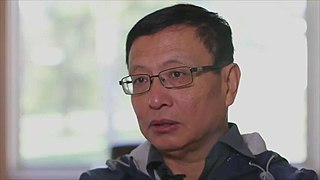
YitangZhang is a Chinese-American mathematician primarily working on number theory and a professor of mathematics at the University of California, Santa Barbara since 2015.

Sijue Wu is a Chinese-American mathematician who works as the Robert W. and Lynne H. Browne Professor of Mathematics at the University of Michigan. Her research involves the mathematics of water waves.
ThetaRay is a fintech software and big data analytics company with headquarters in Hod HaSharon, Israel and New York, and offices in Madrid, London, and Singapore.

The Princeton University Department of Mathematics is an academic department at Princeton University. Founded in 1760, the department has trained some of the world's most renowned and internationally recognized scholars of mathematics. Notable individuals affiliated with the department include John Nash, former faculty member and winner of the 1994 Nobel Memorial Prize in Economic Sciences; Alan Turing, who received his doctorate from the department; and Albert Einstein who frequently gave lectures at Princeton and had an office in the building. Fields Medalists associated with the department include Manjul Bhargava, Charles Fefferman, Gerd Faltings, Michael Freedman, Elon Lindenstrauss, Andrei Okounkov, Terence Tao, William Thurston, Akshay Venkatesh, and Edward Witten. Many other Princeton mathematicians are noteworthy, including Ralph Fox, Donald C. Spencer, John R. Stallings, Norman Steenrod, John Tate, John Tukey, Arthur Wightman, and Andrew Wiles.
